Cost of Connecticut Speeding Ticket
Getting a speeding ticket in CT can be serious and expensive. If you don’t live there, the costs and requirements may be different from where you come from. If you do live in Connecticut, you still may not be fully clear on the laws and penalties there. The best choice is to avoid speeding fines and tickets, but if you can’t do that the next best choice is to be aware, so you know what to expect. The current CT speeding laws are all available to everyone, so you can look at the fines for every infraction. Here are some of the most important things to know about speeding penalties in Connecticut.
What Constitutes Speeding in Connecticut?
A CT traffic ticket can be issued for speeding any time your vehicle is exceeding the posted legal limit. For most people, though, driving a couple of miles per hour over the speed limit is not enough for an officer to pull them over and cite them. They can, but they generally don’t. That’s often because speedometers have a margin of error and proving speeding for one or two miles per hour over the posted limit is difficult. Anyone driving well over the speed limit, though, risks a ticket for the offense and an expensive fine, as well as other types of costs.
Moving Too Fast Can Also Mean Reckless Driving
If you’re driving more than 15 mph over the speed limit, that’s considered a serious offense that can constitute reckless driving. If you’re driving 20 mph over the speed limit, that’s automatically also reckless driving. Getting a ticket for speeding along with driving recklessly can be much more significant than a simple speeding ticket. Two of these serious offenses within three years can mean a 60-day license suspension, and three offenses in the same period of time is a 120-day license suspension. These more serious tickets can cost more money than a standard speeding ticket, as well.
Speeding Fines Can Be Very Expensive
Across the state of Connecticut, the speeding ticket cost can be relatively uniform. Near the bottom right of the ticket, there is an area that says, “amount due.” How much you were speeding and whether there were any extenuating circumstances, such as reckless driving or a DUI, can all affect the cost of the ticket. Additionally, there are court costs and fines that can be imposed. While these are the same throughout the state, it’s important to realize that they will be a part of the total cost if you choose to go to court over the infraction.
Taking Care of a Ticket Quickly is Important
Having the option to pay your ticket online shows that CT courts understand that people are busy and may just want to take care of their ticket and move on. Not everyone is going to go to court and fight a ticket. Sometimes they are involved in work and other activities, and the ticket isn’t a priority to them. Other times they may use the CT ticket lookup to find their ticket and they recognize that they are guilty of the infraction. If they’ve been to court and found guilty, they can also pay their ticket online.
There’s a set time to pay a ticket, and there are also some special categories to be aware of when it comes to the cost of a ticket. Being under age 24, having a CDL, or having previous tickets or other driving infractions on your record can all affect what happens to you after you receive a Connecticut speeding ticket.
The Volkswagen Bus and California
Volkswagen published big news for fans of microbuses and the film Little Miss Sunshine. The 1970’s VW Bus is getting a modernized makeover for its return to the roads. Set to be released in 2022, the Volkswagen Bus I.D. Buzz is an electric microbus that will be a popular choice for road trippers across the country. It’ll definitely be the number one pick if you’re living in a coming of age road trip movie.
However, if you’re going to be a proud owner of your very own Volkswagen I.D. Buzz, you better know how to show it off. Nothing will be more heartbreaking than buying a microbus just to watch it collect dust in your driveway. You gotta hit the road! But, not just any road – the Californian road!
Here are fun things to do when you’re driving your Volkswagen Bus in California:
PCH Road Trip
The Pacific Coast Highway is a staple of any road trip in California. Driving along the coastline during sunset, playing your favorite music, and a montage of your friends laughing isn’t the opening scene to a luxury car commercial. It’s just what happens when you’re driving along one of the most beautiful highways in the country.
Visit the Golden Gate Bridge
One great thing about driving the Volkswagen I.D. Buzz is its fuel economy. When you’re traveling to far away destinations, like the Golden Gate Bridge, you won’t drop an erroneous amount of money on gas. You can say, an electric microbus is the golden gate to the future of innovative automotive experiences.
Surfing at the Beach
With all the rooftop space that comes with the Buzz, you can pack up all your gnarly surfboards and visit the beach. Malibu, Huntington, Santa Cruz, and Santa Barbara have some of the best beaches in California. Be sure to “hang ten” and add these hot spot destinations to your beach journey across the Golden State. That’s how you use “hang ten,” right?
Cruise Control
The least popular and not recommended thing to do with your Buzz is to receive a traffic ticket. To avoid getting a speeding ticket you can use the wagon’s cruise control feature. You can also make sure you are going the speed limit when you see a police officer in any of the mirrors. Either option will help you not get a ticket. You do not want to get a traffic ticket during your drive and come back home to see a spike in your annual insurance rate. If you do a get a ticket, do not stress, you can take traffic school online to dismiss the ticket and avoid getting points on your record.
Camping at Big Sur
The minibus can seat up to 8-people or it can collapse the seats to give you space for luggage. Such as camping gear for your next trip to Big Sur. Being one of the popular locations in California to camp, Big Sur is a great way to celebrate the spacious benefits and fuel economy of your I.D. Buzz. When you roll up to the camp grounds in your fancy future bus, people will call it a Big Sur-prise.
The hype behind Volkswagen’s latest vehicle concept is growing. Within the next four to five years, you’ll be a witnessing a modern resurgence of these classic relics. So, get in on the hype and be on the lookout of purchasing your own I.D. Buzz.
Remember, if you receive a traffic ticket when you’re driving the latest and greatest microbus, you don’t have to break the bank paying it off – especially since you just bought the new car. If you enroll in online traffic school, you can prevent your annual insurance rate from increasing.
The Truth Behind the California Highway Patrol
When sharks spot their prey, they circle the unsuspecting target, waiting for the perfect time to strike. They can taste the blood from their victim and know when it’s ripe for the taking. Sharks are the most dangerous predators of the ocean. People consider California Highway Patrol to be the sharks of the highway.
But, that’s not true.
In fact, they’re predatorial strategy is just one of the many myths behind Highway Patrol. They’re not sharks. Highway officers are making the roads a safe place to drive for everyone. They don’t have a vendetta against anyone or anything, unless it’s reckless, unsafe driving.
You just passed the best online traffic school California has to offer. So, let’s pull back the curtain on the officers who are patrolling the highways around your home state. Here’s the truth behind the California Highway Patrol.
What Exactly Do They Do?
Whether you’re driving down the PCH or taking I-10 through the desert, you’ll pass by Highway Patrol at some point. They have various responsibilities, but the overall purpose of their existence is to help make the roads safe.
If we’re going back to our perfect ocean metaphor, Highway Patrol officers are more like the dolphins of the highways.
Dolphins are the helpful, nice mammals of the ocean, right? Right.
When there’s a roadside emergency, traffic incident, or other high-stress situations, Highway Patrol officers come to support and aide where necessary. They’re here to help. That’s why it’s usually wise to call for Highway Patrol when you’re experiencing roadside trauma.
They also play a large hand in removing drivers, who may be under the influence of a substance, off the roads. They enforce the laws of the road. Reckless drivers, whether they’re drinking and driving, speeding, or driving sporadically and recklessly, Highway Patrol is there to investigate the situation. They want to keep highways safe.
Their Training and Expertise
Still not convinced that Highway Patrol doesn’t have your best interest at hand? We bet you’re thinking “what kind of training do these schmucks have?”
Well, along with their primary education, all California Highway Patrol officers must go through post-secondary schooling.
This includes courses and degrees in criminal justice, police justice, and law enforcement. To add, officers are required to undergo rigorous physical training and testing, as well as personality tests.
When it comes to enforcing the laws, California is looking for the best of the best.
Even after being accepted into the department, Highway Patrol recruits must attend month long training programs and gain experience working in state police departments.
Community Engagement
They’re not just patrolling the highways, they’re educating the community.
Highway Patrol officers take on the responsibility of making appearances around your community to help educate children, driving students, and others. They’re goal is to reduce the number of reckless drivers on the road. A big part of this is by engaging the community.
Whether it’s getting to know the drivers themselves or giving talks on the dangers of driving recklessly in high schools, Highway Patrol officers want to protect the communities they serve.
Uh-oh. Your car is parked on the right side of the highway. You’re holding a ticket that reads “driving violation” that was just handed to you by a California Highway Patrol officer. You’re coming down from a head rush after seeing those lights flash up in your rearview mirror, and your stomach can’t sink any lower.
Now what?
Well, you’re in luck. Traffic school is a great way to reduce the money you have to pay for high ticket costs. You can enroll in a online traffic school for your california speeding ticket and get a price reduction by proving you’re a safe driver.
Myimprov.com offers traffic school classes to show everyone that you too can be a defensive driver.
Do Police Officers Have Traffic Ticket Quotas?
If you’re wondering whether the police officer who gave you a ticket was just trying to meet his or her monthly quota, you’re not the only one. If you do a quick Google search you’ll find that there are a lot of people asking that very same question.
You may have gotten a ticket for going slightly above the speed limit while the car in front of you drove off at a much faster speed, or maybe you noticed a lot more police activity during this past month. While it may seem as though there’s a set monthly quota in place, the truth isn’t so black and white.
Banning Traffic Ticket Quotas
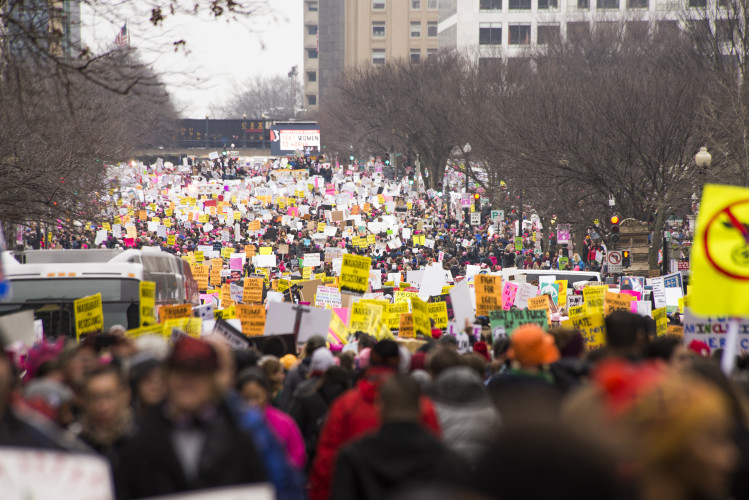
Traffic ticket quotas have come under a lot of scrutiny these past few years and many states have decided to ban them entirely. Illinois, New Jersey, California, and Oklahoma all have passed a bill prohibiting police officers to have quotas and police departments from comparing the number of tickets officers have given when choosing who gets a raise and or moves up in position. Other states are considering doing the same to avoid further scrutiny.
Imposing Illegal Traffic Ticket Quotas
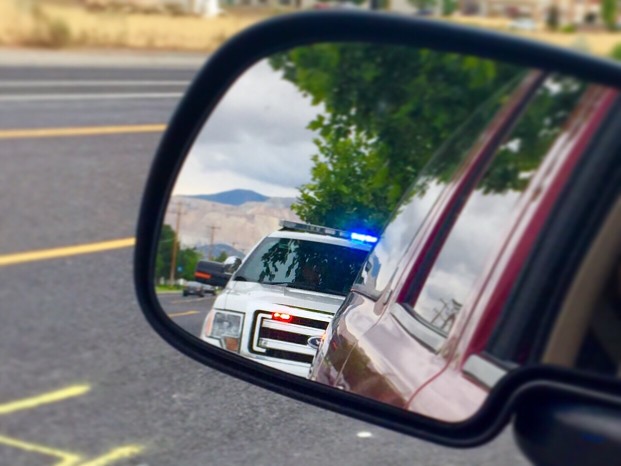
Unfortunately, outlawing traffic ticket quotas has not deterred some police departments from still imposing quotas under a different name. Some departments use the name “station average” to keep track of traffic tickets given out by police officers, causing a lot of issues.
California banned ticket quotas over 10 years ago, but some police departments decided they were above the law and are now being sued by some of their own officers. These departments used quotas to evaluate the performance of police officers and because of it LA must pay $8 million dollars to its own police officers. There are still additional pending cases against other police departments that have continues to break this particular law.
Even Florida has banned ticket quotas, but only for state law enforcement agencies. This ban is enforced, especially after the Florida Highway Patrol was accused of firing a police officer in 2009 because he didn’t give out enough traffic tickets. In addition, police departments in New York and Pennsylvania have also come under fire for using quotas even though it was against the law.
Ticket Quotas Don’t Help the Public

If you’ve ever gotten a ticket you know that traffic citations are often expensive. The police department gets to take a huge chunk of the money you earned and put it into their own pockets. In the past few years there have been a lot of budget cuts causing many police departments to downsize. It’s obvious that they are under pressure to bring in money and this puts pressure on the police officers to give out tickets.
Some police departments have argued that this bill limits police officers’ ability to perform at their best. It makes it difficult to scale a police officer’s performance and motivate officers to meet and even surpass the standards. But those who support this bill point out that it does not prohibit the departments from evaluating police officers through a different method, such as taking into consideration the number of traffic stops, arrests, and warnings the officer has given out. This law simply keeps them from evaluating using ticket quotas.
Many continue to argue that these traffic ticker quotas cause police to lose their focus. The police officers would be more concerned with earning high numbers instead of the public’s safety. Getting rid of these quotas entirely will allow officers to focus more on their job, protecting the public. It will also boost the public’s trust on law enforcement.
If you’ve received a ticket you don’t necessarily have to get the points on your license. Did you know many counties allow you to go to a traffic course so that you can either get your ticket dismissed or at least avoid getting points on your license? It’s true! Next time you get a ticket keep that option in mind.
How Much is A Speeding Ticket in Arizona?
Speeding Tickets in Different States:
The state of Arizona makes use of several unique methods to nab speeders. Arizona drivers must be aware of stationary traffic cameras, officer radar guns, unmarked police cars and beyond. If you are pulled over for speeding, you will likely receive a fine as well as points on your driving record/license.
It is important to note that specific speeding fines differ by city and county. As an example, someone caught speeding in Flagstaff will not face the same fine as someone who is nabbed speeding in Tucson. Additionally, those who have not been caught speeding in the past will likely face less of a fine than those who have received multiple speeding tickets.
Start Your Online Course Now to Dismiss Your Ticket
The table below displays the top 5 counties Arizona drivers get caught speeding in. Traffic school prices differ based on individual court diversion fees. Take a look at the ultimate savings here:
| Maricopa |
|
|
|
|
10-14 mph |
$250 |
$203.95 – $265.95 |
|
15-19 m.p.h. |
$300 |
$203.95 – $265.95 |
|
20+ mph |
$350-$450 |
$203.95 – $265.95 |
|
Traffic Camera |
$165-$200 |
$203.95 – $265.95 |
| Cochise |
|
|
|
|
10-14 mph |
$250 |
$103.95 – $253.95 |
|
15-19 m.p.h. |
$300 |
$103.95 – $253.95 |
|
20+ mph |
$350-$450 |
$103.95 – $253.95 |
|
Traffic Camera |
$165-$200 |
$103.95 – $253.95 |
| Mohave |
|
|
|
|
10-14 mph |
$250 |
$103.95 – $228.95 |
|
15-19 m.p.h. |
$300 |
$103.95 – $228.95 |
|
20+ mph |
$350-$450 |
$103.95 – $228.95 |
|
Traffic Camera |
$165-$200 |
$103.95 – $228.95 |
| Pima |
|
|
|
|
10-14 mph |
$250 |
$103.95 – $233.95 |
|
15-19 m.p.h. |
$300 |
$103.95 – $233.95 |
|
20+ mph |
$350-$450 |
$103.95 – $233.95 |
|
Traffic Camera |
$165-$200 |
$103.95 – $233.95 |
| Pinal |
|
|
|
|
10-14 mph |
$250 |
$103.95 – $233.95 |
|
15-19 m.p.h. |
$300 |
$103.95 – $233.95 |
|
20+ mph |
$350-$450 |
$103.95 – $233.95 |
|
Traffic Camera |
$165-$200 |
$103.95 – $233.95 |
For complete list of AZ Court Diversion Fees: Click Here
Show Arizona the Money

Police officers are required to follow nuanced guidelines when determining the value of a speeding ticket. However, in some instances, the officer will consider the driver’s level of resistance/compliance when determining the cost of the speeding ticket. In other instances, the officer will follow the specific formula that determines the cost of a speeding ticket. If it is determined that you were driving more than 10 miles per hour beyond the speed limit, the financial penalty for your ticket will rise quite dramatically.
A speeding ticket for driving 10 miles per hour beyond the speed limit runs $250. This cost increases $50 for every 5 miles per hour beyond 10 miles per hour above the speed limit.
A speeding ticket for driving 20 miles per hour over the posted speed limit can be increased by $200 more than the initial $250 fee. Driving at such a fast rate of speed can also result in the suspension of the driver’s license. It is even possible for the license to be revoked when the traffic stop occurs.
The amount of the speeding ticket can be changed according to whether the driver was nabbed speeding by one of the state’s stationary traffic cameras. This style of speeding ticket is sent through the mail. It requires the driver to pay a set cost of $165 along with an additional $30 in fees and surcharges.
Show Traffic School the Money – It’s CHEAPER!
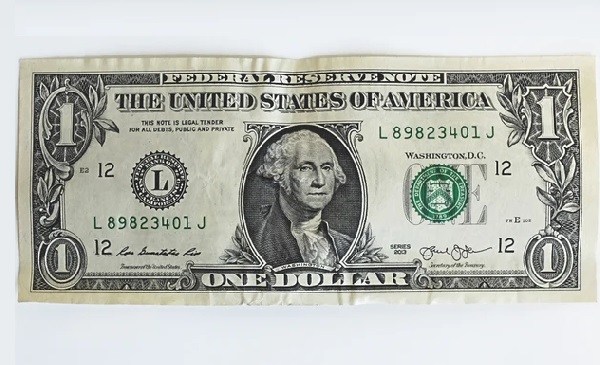
It is usually less expensive to take and pay for AZ defensive driving course, not have any points added to your driving record and avoid having your insurance rates up than to pay your ticket, have points added to your record and have your auto rates increase dramatically.
Eligibility and More

Arizona allows residents to enroll in traffic school once every 12 months. When you take the course, it will only dismiss one traffic related offense. Be sure to look up fines and points for all violations (if you received more than one) before you tell the Traffic School which offense you want the school to dismiss.
Top violations:
Speeding: 3 points
Running a red light or stop sign: 4 points
Failure to yield: 4 points
Criminal Speeding
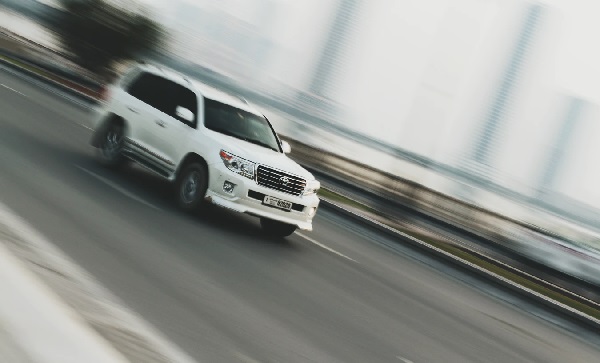
Speeding at an excessive rate, known as “criminal speeding”, can result in upwards of 30 days in jail and a $500 fine. Additional penalties for criminal speeding include paying to have the vehicle retrieved from the space it was towed to. Criminal speeding occurs when a driver goes 85 miles per hour or more anywhere in Arizona. A driver exceeding 35 miles per hour near a school crossing can also be found guilty of criminal speeding.
A driver who exceeds the posted speed limit by 20 miles per hour in a residential or business area can also be found guilty of criminal driving. If no speed is posted in a residential or business area, one driving 45 miles per hour or more beyond the speed limit will face the possibility of a criminal speeding charge. Aside from fines and possible jail time, such a charge can also impact one’s ability to legally operate a motor vehicle.
Answering common traffic school questions
Are you enrolled in traffic school and feeling a bit nervous about the expectations? If so, you are not alone. Most people experience some degree of anxiety. It is quite normal.
However, you should calm down. The goal of traffic school is to make you a safer driver. The curriculum is not set up for you to fail. Instead, quite the opposite is true. The institution wants you to comprehend the material as fully as possible. Your success is their success.
This all sounds well and good, but you also know that in the end you have to complete a certain amount of work with a passing score. Keep reading below to find out just where to turn for answers to your traffic school assignments.

Use this information to help get a passing score. Then, enjoy the safe driver record and dismissal of tickets. And, of course, do not forget the mandatory insurance discount.
I’m struggling with my online traffic school course, what should I do?
You would be surprised at how easy things can be when you use a little common sense. Just stop trying to make traffic school so difficult and all will be smooth sailing.
When things get tough, just sit back and relax. You have been a driver for some time now. The answer is probably the one that seems right to you. Use your intuition.
For example, the rules of the road exist to protect motorists and pedestrians. You already know this. So, use this knowledge to help you figure out the answers to your traffic school questions. If a choice does not help keep people safe on the road, then you can discard it.
Can I ask friends & family for help with my online traffic school?
The people around you, such as family and friends, are excellent sources of information on traffic laws. Many of them have been driving for decades and know all the rules in your state. Be sure to ask them for help when trying to complete your course.
It may be best to rely on more than one person for the answers. You will want a variety of opinions. Listen to what everyone has to say, check your course material again and then choose the best answer.
How can I use the internet as a source for answers with my traffic school online?
You should search the internet for relevant driving websites. Your state motor vehicle department will have the current rules of the road available online. Likewise, the state insurance department can provide you with information on auto insurance requirements.
Last, the state court website can explain what will happen if you break the laws while behind the wheel.
What about the instructor of the online traffic school course, can I ask them for help?
If truly stuck with nowhere to turn, then ask your instructor for help. Now, you should always be sure to have attempted to find the answer yourself first. Quite often, wayward students will skip the reading material or fail to follow instructions and then expect the instructor to bail them out.
Truly attempt the assignment before asking for the instructor to explain it to you. Doing so will make their explanation that much more comprehensible.
Traffic school success is right around the corner!
You are now prepared to complete your traffic school with flying colors. Just take things easy and you will succeed in becoming an acknowledged safe driver in your state.
Traffic School Daze vs. Real Traffic School
If you saw the Jamie Foxx Show, Season 2, Episode 10, when he goes to traffic school, you might be a bit anxious about signing up. Do not worry, the show was very much an exaggeration.
Sure the episode was extremely funny, but they got things wrong. You should relax and know that your school wants you to succeed. They will not be out to fail you as was the case for Jamie and Braxton!
Following are some of the realities of traffic school. You should be thankful things are a lot different than in the show.
You Cannot Bribe the School
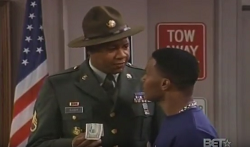
When they arrive at the traffic school. Jamie tells his co-worker Braxton that they will not have to stay the entire time. He had heard from reliable sources that it is possible to pay off the school. In return, the instructor will claim the student completed the course, and the traffic infraction would be dismissed.
You better not attempt to bribe a traffic school official. They will not take the offer lightly. You may find yourself turned in to the authorities. Moreover, the state may decide to leave your traffic record as is.
In fact, the authorities may even add another violation to your record because of your unethical behavior.
The Instructor is not a DI
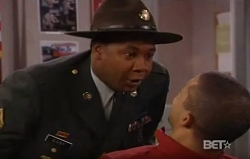
The instructor in this episode is a real character for sure. He obviously has watched a few too many military boot camp films. The students are told to address him as “sir!” He yells and threatens them regardless of what they do. It is the form of intimidation you expect of a drill instructor or prison guard.
Well, you can relax. Nobody will yell at you in a traffic school classroom. The instructors are there to help you pass. They will not treat you like a prison inmate.
And, if you are still a bit concerned that maybe you will get that one rogue instructor from the Jamie Foxx Show, then you can always take your class online. This means you will complete the course from the safety of your home. Nobody can yell at you via the computer screen.
You Can Ask Questions Freely
The traffic school succeeds when you succeed. They want you to be a safer driver. Thus, unlike the instructor in the show, the traffic school staff will answer your questions without personal attacks.
Nor will they get into your face in order to intimidate you. Fear is not a tactic used in the real traffic school classroom. Instead, expect to find compassionate instructors who enjoy their jobs.
No Ten-Hour Mandatory Sessions
Jamie and Braxton “belong” to the instructor for the next ten hours according to the show. Now, that is pure torture.
You will not have to endure such a long duration of traffic school at one time, unless that is your choice. Just sign up for the online version. You can start and complete sessions at your convenience. Too bad Jamie did not think of that?
No Pushups
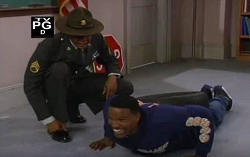
Jamie had to do over 1000 pushups as punishment for his behavior.
Fortunately, you will never be told to perform any physical activity whatsoever. Just listen to the instructor, study your course material and it will be smooth sailing.
Nobody Goes Home Broken
Repeatedly throughout the show, the instructor tells Jamie and Braxton that he will eventually “break them” down. Supposedly, the students will get tired of the harassment and give up. For some reason that would be a plus to the television instructor.
In real traffic school, the instructors want you to enjoy all the benefits of course completion. Then, you will go on to tell others to attend the school.
They want to “make you” not “break you.”
How to Get Traffic Ticket Reduced
Traffic tickets are not welcome no matter why you get them, and they will always pose the receiver with a dilemma: to pay, to ignore, or to fight? A ticket can translate to potential points on your license which can increase your chances of having your license taken away. It can even interfere with your job if you get too many of them. And they’re not cheap. Just one ticket in California can run you more than $230.00 if you’re caught going 15 miles over the limit. Most people will go to traffic school to stop the points from going on their driving record, however, getting your traffic ticket reduced is an option. It normally starts with the date on your ticket.
Show Up – In Person
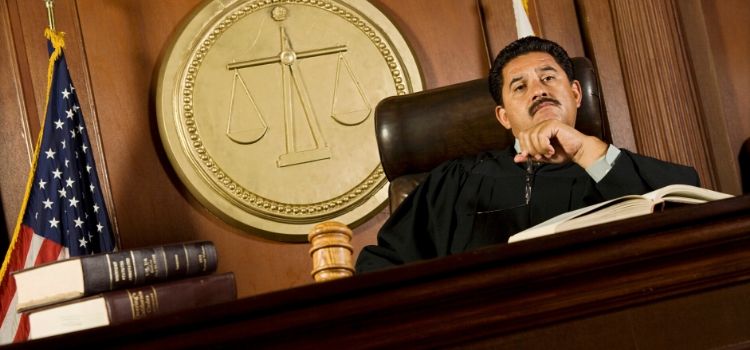
It’s possible that you could defend your ticket in writing, but it’s not always offered and not necessarily recommended. It’s much easier for an official to ignore or skim a written request than it is when a person makes the effort to defend themselves in the flesh. Plus, if you write to contest the ticket and lose, you generally can’t appeal the decision. Depending on where you live, you may have a traffic court date or potentially a settlement conference to attend to start the process. Taking the time off from work may be a hassle, but if you the costs are high or if you feel like the officer made an error, then it may be worth it. A conference will be a good time to determine if there’s a way to get the ticket knocked down to something a little easier on your record.
Going to Trial
Trials will eat up your time and money with court dates and fees, but again, a trial may be what keeps you from having a major black mark on your driving record. Sometimes the officer won’t show up, in which case you win by default. You may have to do some research on the officer who gave you the ticket (e.g., when their radar gun was last calibrated, etc.) in addition to having your own arguments. You can also hire a lawyer to fight it for you. Those that specialize in traffic tickets may have more of a chance to get your ticket reduced to a minor parking violation. Lawyer rates vary though, so do some research before going this route. Your case will be a civil case, so the evidence will be about witnesses, statements, and physical evidence (e.g., camera footage.)
Mitigation
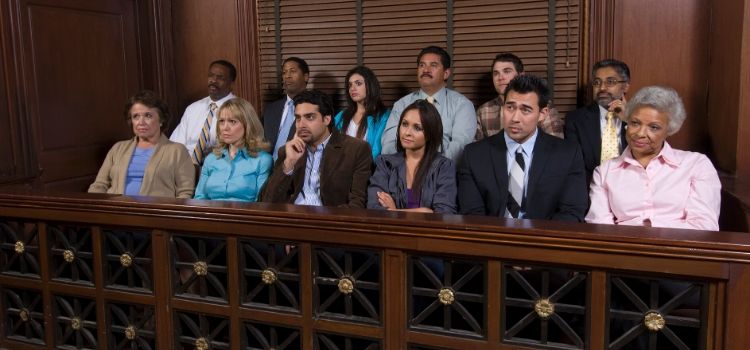
Mitigation is a way for you to admit fault, but explain the circumstances. For many, this will become an exercise in their negotiation and people skills, but sometimes it’s not even taken into consideration. There are certain judges out there who will reduce a $120 traffic ticket by $30 and extend the deadline — without even asking you to make a case. But most of the time, if you have a good driving record and a decent story, you’ll probably see some leniency after giving the details. Whatever deal is offered up is ultimately yours to either take or appeal, but you would need to do so with extreme caution. Any potential sign of disrespect to either the judge or law enforcement in general is not going to be appreciated. (We’re sure you’re surprised.)
Alternatives
Each state is different when it comes to alternatives for reducing a traffic ticket, so check into the specifics for all the above. Some states will allow you to take traffic school or a defensive driving course to avoid the points and some states will let you wipe the ticket entirely if you keep your driving record clear for a full year. Regardless of where you live though, there are ways to reduce your traffic ticket if you know where to look.
How to Get a Traffic Ticket Reduced
To put it bluntly, traffic tickets are hell. You wind up paying exorbitant fines because some municipalities are increasing the amounts to raise revenue. Moreover, the police are more vigilant than ever about catching motorists in the wrong. If all of this is not bad enough, never forget about the cameras that photograph your car speeding and send the pictures to you in the mail, along with a large bill.
So what can the average driver, such as yourself, do to survive in this age when “Big Brother” is watching their every move on the roads? Well, the answer is to enroll now for a defensive driving course. Not only will you receive pertinent information on how to remain safe behind the wheel but also a possible reduction of license points and having your ticket reduced or dismissed.
The Driving School of Today

You might at first be a bit wary of the advice to attend driving school. After all, you are probably a busy person. When do you have time to sit in a classroom?
Well, scheduling classes is no longer an issue. The driving school of today can take place either in a traditional brick and mortar building or online. You can have online class wherever and whenever convenient. In fact, many families and coworkers enroll in group classes to motivate each other to complete the courses.
Ticket Reduction

Most states allow those who completed a defensive driving course to have their traffic tickets dismissed.
The school should be recognized by the state. Moreover, the instructor must be certified by the authorities and the course most be for a certain number of hours. Check with your driving school to ascertain the specific requirements in your jurisdiction.
Upon completion of the course, motorists may receive ticket dismissal, license point reduction and automobile insurance discounts.
Defensive Driving vs. Traffic School

Be careful when enrolling. Some states define the two kinds of schools differently. In New York and Florida, you will be taking a defensive driving course to have your traffic ticket points reduced.
Arizona dismisses certain traffic violations after a motorist completes an approved defensive driving course. In contrast, traffic school is for serious violators ordered to take classes by the courts.
Meanwhile, California uses the two names interchangeably.
Going to Court

Americans have the right to defend themselves in a court of law. Some choose to do so when presented with a traffic ticket. They want to fight it out with the city to get the infraction removed from the record.
In certain cases, these challengers are successful. A California physicist was able to use scientific principles to win. He demonstrated that a police officer, situated at a certain angle, perceived his car to have run a stop sign when in fact it had stopped. In other instances, an alleged violator can win by default when the officer who presented the ticket does not show up in court.
Nevertheless, these victories are few and far between. Motorists usually wind up having to pay the fine and possibly some court costs.
Defensive driving school is the easier route without a doubt. Just enroll, finish the course and the violation disappears.
Enroll and Get on With Life
Everyone wants to save money. One way you can do so today is by enrolling in a state approved defensive driving school. You can have your ticket dismissed, removing the fine. Better yet, your driving record will be wiped clean, leading to a reduction in your insurance premium rate.
Perhaps best of all, you will learn some driving skills that can help you avoid getting tickets in the future.
NY Cracks Down on Distracted Drivers
Governor Cuomo Signs Law Strengthening Enforcement Against Drivers Caught Using Handheld Electronic Devices
New Legislation Makes Using Handheld Electronic Devices while Driving a Primary Traffic Offense; Additional Regulation will Increase Penalty from 2 Points to 3 Points for Cell Phone and Electronic Device Usage While Driving
Albany, NY (July 12, 2011) Governor Andrew M. Cuomo today signed a new law that strengthens the enforcement against drivers who use handheld electronic devices for activities such as texting while a vehicle is in motion. The legislation makes this action a primary traffic offense, giving law enforcement the power to stop drivers solely for engaging in this activity. The Governor also announced today that he will increase the penalty for using a cellular phone without a hands-free device or a handheld device while driving from two to three points through changes in state regulations. “I am proud to sign this bill today, both as the Governor and as a father of three teenagers,” Governor Cuomo said. “It’s plain and simple: distracted driving leads to tragedies that have affected families all across New York.
This new law will help ensure that drivers keep their eyes on the road and their hands on the wheel. I thank Senator Marcellino and Assemblyman Weisenberg for their hard work on this legislation.” Before this law, it was illegal for drivers to use handheld electronic devices while their vehicle was in motion, but it was a secondary traffic offense — meaning a driver had to be stopped for another violation in order to receive a ticket. The new law makes it a primary traffic offense and it will go into effect immediately. The monetary penalty for a violation of this law continues to be a fine of up to $150. Illegal activity includes holding an electronic device and:
- Composing, sending, reading, accessing, browsing, transmitting, saving, or retrieving electronic data such as e-mail, text messages, or webpages
- Viewing, taking, or transmitting images
- Playing games
The law does not penalize drivers using a handheld electronic device that is affixed to a surface or using a GPS device that is attached to the vehicle. The law also exempts police officers, fire fighters, or emergency vehicle drivers while they are performing their duties. In addition, a driver is exempt from the law if the driver is communicating or attempting to communicate with law enforcement, the fire department, or medical personnel during an emergency situation.
New York State Senator Carl L. Marcellino said, “With this new legislation, New York State driving laws have finally caught up with today’s technology. Our new law will strengthen enforcement against drivers using handheld electronic devices and help keep drivers, passengers, and pedestrians safe. I am proud to stand with Governor Cuomo as he signs the bill I sponsored into law and we finally make distracted driving a serious offense.” New York State Assemblyman Harvey Weisenberg said, “As a former police officer, I’ve seen the devastation caused by distracted drivers. Today, we are giving law enforcement the tools they need to keep our roads safe and prevent future accidents. These changes will save lives. I’d like to thank Governor Cuomo for supporting this law and I look forward to our continued work together.”
New York State Police Superintendent Joseph A. D’Amico said, “Motorists should now realize the dangers of operating a motor vehicle while texting on mobile devices or talking on a cell phone without an approved hands-free device. This change in the statute will allow law enforcement to continue the battle against distracted driving. Distracted driving is dangerous driving and drivers must reduce diversion and behaviors that take their attention from the road. Attentive, responsible, defensive driving is the key to avoiding crashes and keeping our highways safe.” New York City Police Commissioner Raymond W. Kelly said, “It’s no secret that violations of the no-texting and no use of hand held devices while driving rules are widespread despite their nexus to accidents, including fatalities. This legislation is a welcome step toward saving lives.”
President of AAA New York State Thomas Hoy said, “With nearly 2 trillion text messages sent last year, texting represents the most dangerous form of distracted driving. We applaud the Governor and lawmakers for stiffening the consequences for those who jeopardize the rest of us with their careless conduct.” The National Highway Traffic Safety Administration reports that 16% of fatal accidents in 2009 were due to distracted driving and 20% of people injured during a crash were involved in a crash where distracted driving was reported. A study by the Virginia Tech Transportation Institute found that truck drivers who were texting were 23 times more at risk of a crash or near crash.
3 Ways to Prevent Your Car Insurance Rates
If you’re like most people today, finding ways to save money is your #1 obsession. But if you have one or more traffic violations, your car insurance rates may be taking back every penny you work so hard to save.
If you’re feeling trapped in a traffic ticket pile up, here are three ways to dig yourself out of the unwelcome weight of higher insurance rates:
1. Shop around for a better rate. The first thing you should do is to compare quotes from various car insurance companies to see if you can find a lower rate.
According to an Insurance.com analysis of more than 32,000 insurance policies sold in 2010, drivers who bought a one-car, single-driver policy last year and had one violation in their driving history paid an average of 18 percent more for car insurance than drivers with no violations.
The numbers get worse as your offenses pile up. Drivers with two violations paid 34 percent more for insurance, and drivers with three violations tacked on a whopping 53 percent to their insurance costs when compared to drivers who were violation-free.
If you decide to shop around for a better deal, investigate new companies carefully to avoid any policy pitfalls.
2. Take a driver safety course. Some states reduce or expunge points from your driving record if you take a defensive driving class. Depending on where you live, your auto insurance company may be required to lower your car insurance premium after you complete the course.
For instance, New York offers a Point and Insurance Reduction Program (PIRP). If you are the principal operator of a motor vehicle registered in the state of New York, and you complete an approved PIRP course, you will receive a minimum 10% reduction in the base rate of your automobile and motorcycle liability and collision insurance premiums each year for three years.
To learn more about the driver safety courses and point and insurance reduction in New York, please visit: https://transact.dmv.ny.gov/pirp/#ipirp.
In many states, insurance companies have point systems that are different from their DMV driver violation point system. Contact your insurance company about their point system and find out how completing a driver safety course may reduce your rate.
3. Raise your deductible. Drivers who raise their collision and comprehensive deductibles from $250 to $500 or $1,000 will see their annual premium fall. However, before taking this route, make sure you have enough money in savings to cover the deductible should you have to make a claim.
Which violation hurts your rate the most?
Car insurance rates soar for drivers who have one moving violation and jump by more than 50 percent after three.
Some of the violations that hurt your car insurance rates the most include:
- Speeding tickets
- Driving under the influence of drugs or alcohol
- Careless or reckless driving
- Running red lights
- Failure to yield or stop at a sign
- Fleeing from police
- Driving the wrong way down a divided highway
- Improper passing
- Unsafe U-turn
- Failure to use a child restraint
Obviously, a DUI is going to be one of the worst for rate increases. But each insurer calculates rates differently, so a specific type of violation may be priced higher by one insurer than by another.
Drivers with three or more violations worry about becoming uninsurable, but those fears may be unfounded. It’s just a matter of finding the right rate for that risk.
If an insurer raises your auto insurance rate after a violation, there are still ways to cut those costs. Following these three steps will help you stave off higher insurance rates – before they bury you.
The original article can be found at Insurance.com:
“Car insurance rates soar as tickets pile up”
Texting-and-driving bill dies
Senate deadlocks on measure to ban sending messages from road. Arizonans will not be banned from texting while driving, at least this year.
Proposed legislation that would have prohibited typing, reading or sending text messages and e-mails while driving on a state highway died with an 11-11 vote by the Senate on Tuesday. The bill would not have prohibited talking on the phone while driving and would have allowed drivers to type a name or telephone number to make a call.
This is the second year in a row the effort to ban texting while driving has failed despite support from dozens of organizations, including cellphone-company representatives. The Arizona Citizens Defense League opposed the measure.
Legislators who voted against it acknowledged that texting while driving is dangerous, but said they opposed unnecessary government restrictions.
Sen. Ron Gould, R-Lake Havasu City, called the legislation a “nanny bill” and “feel-good legislation” that would have banned a practice already covered under current laws against reckless driving.
Supporters said the bill is about saving lives. They said parents would be able to tell children that texting while driving is illegal.
“It’s such a dangerous activity to be texting while you’re driving, that outlawing it would seem to be a given,” said Sen. Barbara Leff, R-Paradise Valley.
Phoenix banned texting while driving within its city limits in 2007. Phoenix police Officer Luis Samudio said that about nine citations for texting while driving have been issued since the law went into effect.
“It is minimal,” he said.
Read more here
If you have recently taken some type of traffic school you know its very dangerous to text or talk while driving. Its been proven over and over. So please practice safe driving.
Cars Most Likely To Get A Ticket
Contrary to popular belief, drivers in red cars don’t get ticketed more often than their less-flashy comrades. Middle-aged males with a thing for foreign brands, on the other hand, had better watch out.
Men who drive a Volkswagen GTI or Mercedes-Benz CLS-63 AMG are twice as likely to get a ticket than the average driver. If they’re in a Hummer, they might as well plan on it–drivers of the Hummer H2 face more than triple the chances of a citation.
“It’s the combination of the male driver driving the big old Hummer and a mid-life kind of person feeling good,” says Bob U’Ren, senior vice president at Quality Planning, a San Francisco-based company that validates policyholder information for auto insurers. “That’s the magical combination that drives some of these things.
To determine the cars most likely to get a ticket, Quality Planning’s analysts looked at traffic violation data from February 2009 through February 2010, counting the number of violations racked up by different car models. To account for the difference in number of cars on the road, they averaged the violation count per 100,000 miles driven. Vehicles that have been discontinued for more than 10 years were not included in the analysis.
The most-ticketed car on the road, the Mercedes-Benz SL-Class, is a two-door luxury convertible–suggested retail price for a SL550 Roadster is $102,600. Drivers of these cars are four times more likely to get a ticket than the average person.
Luxury coupes and sedans dominate our list: Only one SUV (the Hummer H2) and two hatchbacks (the Scion xB and Volkswagen GTI) appear on the top 10, and no minivans or wagons.
In fact, according to Quality Planning data, 8 of the 10 least-ticketed cars are SUVs and minivans. U’Ren says that’s because drivers who carry multiple passengers–especially young passengers in car seats–significantly alter the way they drive. (For example, it’s likely many drivers of No. 3, the Scion tC coupe, aren’t toting kids.)
Our list of the cars most likely to get a ticket includes only two autos manufactured by Detroit’s Big Three, both of them discontinued: the Hummer H2 and the Pontiac Grand Prix. Drivers of GM’s discontinued sedan are almost twice as likely than the average commuter to be ticketed behind the wheel.
Another standout on the list: the Toyota Camry. Not known for its glamor or luxury (or looks, performance, style, etc…) it makes the list for reasons having little to do with its mainstream popularity. U’Ren says there’s a large segment of Camry drivers who are proportionally disposed for violations: older women, who are less likely to be driving with kids. It’s also important to remember that this segment includes the Solara coupe–a sportier version than the ho-hum Camry sedan. “Sixty percent of those drivers are female, and they’re a little bit older–50 years old on average,” U’Ren says. “That’s the profile of the type of person that would buy and drive a Camry and Solara–and drive it quickly.”
So, what to do if you do get pulled over for speeding? Don’t automatically admit guilt. Don’t assume you’ll have to pay the full amount of the fine. And make sure you’ve done research about what your options are when you speak with the police officer. Many states allow discovery requests, which let drivers get police department information about their particular traffic violation–details like officer credentials, the device they used to monitor speed, traffic flow status, etc. If certain discrepancies come up, they could help reduce or remove the ticket fee, says Bonnie Sesolak, the development director for the National Motorists Association.
“Pay attention to what’s going on around you when the officer pulls you over,” Sesolak says. “Certainly be respectful. You can answer his questions, but you only need to answer the questions that are pertinent to why he pulled you over.”
Or try chalking it up to the proverbial mid-life crisis.
If you happen to get a traffic ticket, chances are an online traffic school will help you with your insurance. Depending on the state a traffic school can even erase a point from your record.
Fighting Traffic Tickets – Is it a Good Idea?
Decide Whether the Ticket Is Worth Fighting First off, decide whether it’s worth your time to fight a ticket. If a ticket means thousands of dollars in increased insurance premiums, risk of license suspension, or other serious penalties it may be worth the hassle… however, fighting tickets is not simple it may not be always worth it. Below are some basic guidelines that can help you decide
Understand the Law You Are Alleged to Have Violated Most police officers don’t really know the letter of the law – after all that’s what attorneys are for. An easy first step in fighting traffic tickets is to read the exact law you’re alleged to have violated, and break it down into elements. Once you’ve broken the law down into its components, if you can show that your behavior didn’t meet the exact prohibitions contained in the law, then you’ve gone a good ways towards showing that you haven’t violated the law at all. Here’s an actual stop sign law, with brackets to separate different elements of the law: “[A person] [operating a human-powered vehicle] [approaching a stop sign shall slow down] and, [if required for safety, stop before entering the intersection]. After slowing to a reasonable speed or stopping, [the person shall yield the right-of-way to] [any vehicle] [in the intersection] or [approaching on another highway so closely as to constitute an immediate hazard during the time the person is moving across] or [within the intersection or junction of highways], [except that a person after slowing to a reasonable speed and yielding the right-of-way if required, may cautiously make a turn or proceed through the intersection without stopping].” Some elements you can’t really challenge (you are a person after all), but notice that stopping isn’t actually required! It’s only necessary if it is “required for safety” and the law explicitly allows you to “cautiously make a turn or proceed through the intersection without stopping”. Chances are good that the police officer wrote down something like “rolled through intersection without a complete stop”. You can easily go into court, lay out the law, and demonstrate that you never violated the law in the first place. Will a judge accept this? Absolutely. This is precisely what lawyers do, they break down laws into elements and try to prove that some element wasn’t met. Remember, you’re innocent until proven guilty.
Don’t Pay the Ticket, It’s Often an Admission of Guilt When you first get your ticket, do not pay it. In almost all jurisdictions, paying the fine is an admission of guilt. Instead, find out how you can get your day in court.
Consider Traffic School Many jurisdictions offer an option to attend
traffic school. In return, your charges will be dismissed or reduced and points masked from your driving record. Explore this option by researching the law in your state. If you find that an
online traffic school is a good option, request it from the prosecutor or judge. Most of the jurisdictions that accept traffic school (sometimes referred to as a
Defensive Driving Course) will also allow you to complete it Online. Traffic School requirements range from 4-12 hours , which is still much better than some other alternatives.
Common Defenses to a Traffic Ticket There are several typical defenses used when fighting traffic tickets. Many of the defenses below are based on your constitutional right to question the accuser .
The Officer Doesn’t Show UpThe easiest way to win is to have the police officer not show up. Because you have a constitutional right to question the accuser, if the officer doesn’t show, you will typically automatically win. How can you increase your chances of getting a no show?
- Postponing the court date can significantly increase the odds that the officer will not be present during the trial.
- Never go with the date on your ticket. That’s usually a “gang date” for the officer, where the officer has scheduled all of his or her court dates at once. If you schedule for an extension that falls on a different day, chances are they aren’t going to come in on their day off just for you.
- Try to choose a court date that is closer to the holidays or summer vacation days – this might increase the odds of your officer being out on vacation.
Camera Tickets and Hearsay People often think that there’s little they can do with a camera based ticket, but they’re amazingly easy to beat. Here are some tips:
- Courthouses will rarely go through the trouble of bringing the video or picture to court, usually resulting in an automatic dismissal of the ticket.
- Even if they do, there is no human subject to question other than the officer who viewed the tape. The second the officer opens his mouth, you just object “hearsay”. Hearsay is the equivalent of “so and so told me”, which courts consider unreliable evidence. After all, the officer didn’t actually see you do anything, rather the officer is relying on the observations of someone/something else. As a result, the officer can’t testify as to what you did wrong and obviously neither can the camera. It takes courage to do this, but it can work.
Trial by Declaration In many states, you are entitled to a trial by mail. You submit your claim as to why you are innocent in a letter, and the officer must do the same. While officers will often show up for court because it is an overtime opportunity, trial by mail is pure paperwork, and they will often not bother to submit their side of the story. When this happens, you win by default. Should you lose by mail, you have lost nothing: you can still request an in-person trial, request traffic school, or pay your fine. The Sixth Amendment Requires a Speedy and Public Trial The sixth amendment guarantees you a speedy and public trial, and this can be an easy basis to avoid a ticket. For example, in California, a speedy trial is defined as 45 days from the time of the infraction. In many jurisdictions you must go to the courthouse in person to get a court date. Among those legal documents you are asked to sign, will be one in which you waive your right to a speedy trial. Do not sign this document. You cannot be legally forced to waive this right. What this means is that if the court system cannot fit you in, within those 45 days, (times for your state may vary) then your case must be dismissed. Tickets Based on Radar Guns Most radar guns need to be recalibrated every 30-60 days, and due to ignorance, lack of funding, or laziness, they rarely are. One solid argument for your case is to prove that the measurement device is faulty. In some states the officer must check the calibration after issuing the ticket – usually by using two tuning forks held in front of the radar, which vibrate at the frequencies for 35 mph and 55 mph. Verify whether this was done and documented. Check Your Ticket for Errors While courts will often excuse minor errors on a ticket ? a misspelled name or whether your car color is maroon or dark red ? if the officer cites the wrong law on the ticket, or grossly misidentifies the highway or your make of car, you may to get your ticket dismissed. Defenses That Don’t Work The following is a short list of common defenses people often make when fighting traffic tickets that just don’t work:
- You claim ignorance of the law. It doesn’t matter how honestly you misunderstood what was required, it won’t work.
- You argue that no one was hurt. The no-harm-no-foul rule doesn’t apply in court. The only exception is whether safety is part of the law itself, and you can argue that obviously you operated your vehicle safely because no one was hurt.
- You complain that the officer selected you alone out of a dozen other potential violators. Admitting that you were in fact guilty, but that there were other guilty people present doesn’t help you. You can win a “selective enforcement” defense, but it’s very hard to do and requires that you demonstrate the officer had a specific and improper motive to pick on you. For instance if you filed a report against the officer and he just happened to pull you over the next day with a dozen other violators nearby, you may win.
- You give the judge a sad story. It doesn’t work, judges hear this all day long and may doubt your honesty. At best this will slightly reduce your fine.
- You claim the officer is lying. Between you and the police officer, the judge is more likely to believe the officer. Unless you have specific proof, it won’t work.
How To Avoid A Speed Trap
It may seem like every day is a battle while driving on the road. You race across town to get to places on time .. avoiding cars that are driving too slow or too fast. In most cases you may fall into the latter category since you’re always trying to make it to your destination on time. And then BAM a speed trap…
Most of you may have experienced being in a speed trap and it sucks getting that hefty traffic ticket which usually derives you NO mercy especially if you’re going fast on residential roads.
Although we are in no way encouraging you to beat the system and go fast through town here are some tips on how to minimize getting caught in “THE SPEED TRAP.”
Note: We do not condone speeding.
1. Don’t speed. But if you are then look out for typical speed trap spots like heading down hills, rounding curves.
2. Utilize services online that will help you on the road. Folks are getting hip to speed traps around their town and are using the world wide web to help their fellow drivers:
The Speed Trap Exchange website [http://speedtrap.org/] helps you find speed traps along your route; before embarking on a trip do a little research and take the list with you.
Another tool to avoid speed traps and apparently favorite amongst soccer moms can be found at Trapster.com. This application can be downloaded to your cell phone and will send you real-time alerts about locations of a speed trap. What’s even better is that it is hands free so it also avoids you getting a ticket for holding your cell phone to check. Visit Trapster.com for all the info.
3. Buy a Radar detector. Note to Truck Drivers: By federal law, radar detectors are illegal in commercial vehicles (such as trucks) in all states. Radar “jammers” are also illegal in all states.
4. Seems that the best tool on the road is to have knowledge of the road you’re traveling so educate yourself on the maximum speed limits in all the states you’ll be visiting as speed laws vary from state to state. Visit: http://www.nhtsa.gov/people/injury/enforce/speedlaws501/introduction.htm
So enjoy the road with these little tips on avoiding speed traps but most of all drive safely … not too fast. Also, if you happen to need it online traffic school or defensive driving course could be the best way to fix your driving record.


















 Live Chat
Live Chat



